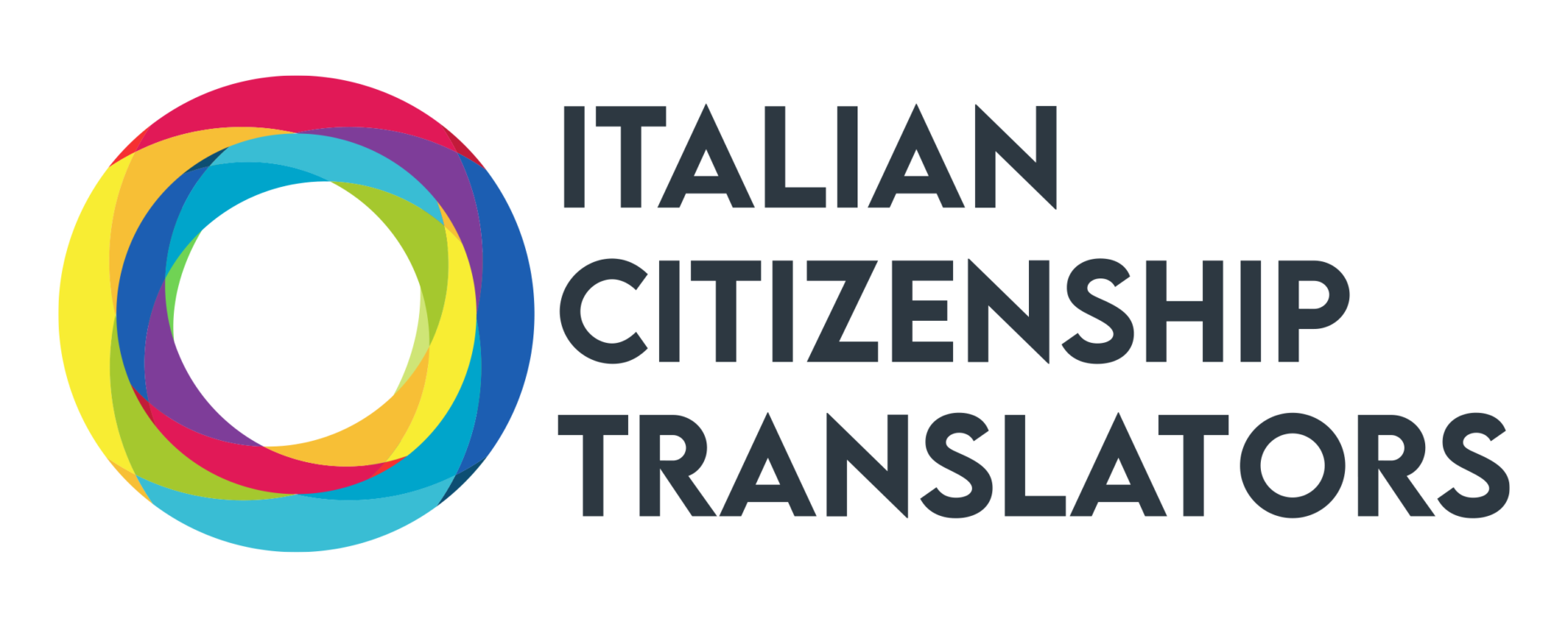
How to certify a translated document
Acquiring Italian citizenship entails presenting various legal documents, including birth certificates, marriage certificates, and other essential vital records. Since most of these documents will likely be in your native language, it is crucial to have them accurately translated into Italian. In this article, we will guide you through the steps of certifying translated documents to facilitate your application for Italian citizenship, ensuring a smooth and successful pathway to becoming an Italian citizen.
Finding a translator: the first step
Start by conducting thorough research to find reputable and qualified translators. Look for translators with expertise in legal and official document translations and those specializing in the languages you require. Verify their credentials, qualifications, and certifications to ensure they are legitimate and authorized to provide certified translations.
When hiring a translator, provide them with all the necessary information about the documents and the purpose of the translation. Clear instructions will help the translator understand the context and requirements of the translation accurately. Generally speaking, consulates in the U.S. accept uncertified translations of U.S. documents, whereas documents issued in other countries often require a certified translation. The reason for this is that clerks are required to speak Italian and the language of the country where the consulate is based, therefore they cannot verify that the translations from other languages are accurate. It is worth pointing out that there are cases in which consulates in the U.S. might require applicants to provide certified translations of specific legal documents; for example, this is the case for the Italian consulate in New York.
Obtaining a certification
Once the documents are translated, you might need a certification of the translations depending on the path to citizenship that you are pursuing. Translations may be certified by a professional translator before a public notary, by an Italian consulate abroad, or by a professional translator in the presence of an Italian court official. Translations may also be sworn in a court in Italy by a sworn translator, also known as a “traduttore giurato.” The main difference between certified translations and sworn translations is that while the former often entail a self-certification statement signed by the translator before a public notary, the latter entail an official oath signed by the translator before a court or the Justice of the Peace in Italy, and thus have legal value and are subject to a stamp duty. As previously mentioned, if you apply for citizenship at an Italian consulate in the U.S. it is likely that you will not be required to certify your translations. On the other hand, if you file your application for citizenship at a municipality or a court in Italy you will be required to provide sworn translations.
The apostille process
The apostille process is a crucial step in ensuring the authenticity and validity of official documents for international use. An apostille is a certificate issued by a designated government authority in the country where the document was issued. The apostille confirms the document’s origin and the authority of the official who signed it. When applying for Italian citizenship, certain documents may require an apostille to ensure their recognition and validity. Some common types of documents that often need an apostille include birth, marriage, death and divorce records.
It is essential to check with the relevant authorities or consult with a professional to determine which specific documents need an apostille for your unique case. In addition to this, some consulates may require the apostilles on your vital records to be translated, however, this depends on the specific consulate to which you apply. On the other hand, if you apply via a municipality in Italy or via the court system you will need to translate all your vital records and the corresponding Apostilles into Italian.
Purchasing a property in Italy: you might also need certified translations
If you obtain Italian citizenship and decide to buy a property in Italy but you do not speak Italian, at some point, you will need a translator. In fact, purchasing property in Italy as a foreigner involves navigating through a maze of paperwork, including financial statements, proof of identity, and other legal documents. As most of these documents will be in your native language, they must be translated into Italian to facilitate the transaction process. Depending on your country of origin, you might need documents such as bank statements to be translated into Italian by a certified translator. As explained in our previous article, certified translators have professional training and expertise in accurately translating legal and technical documents and they can help you to ensure a smooth and successful acquisition of your dream property.
Our services
At Italian Citizenship Translators we offer a wide range of translation services and specialize in translating documents needed to acquire Italian citizenship. Our certified translation services include translations certified by an Italian consulate abroad, translations certified by a professional translator in the presence of an Italian court official, and translations certified by a professional translator in the presence of a public official abroad, such as a U.S. public notary. Additionally, we provide other certification methods, such as sworn translations. With our expertise and dedication to accuracy, we strive to meet your translation needs and facilitate your official processes seamlessly.
If you have any questions or you would like help, do not hesitate to contact us at info@italiancitizenshiptranslators.com.
